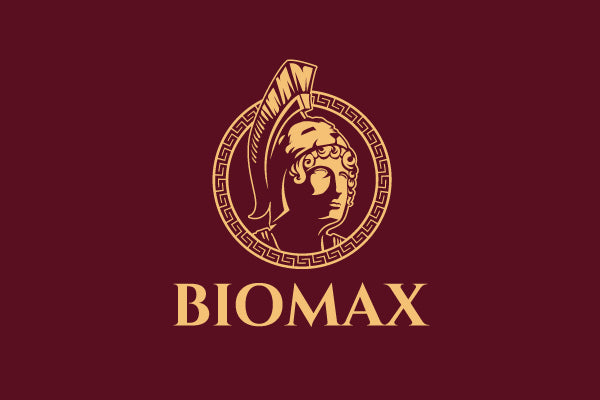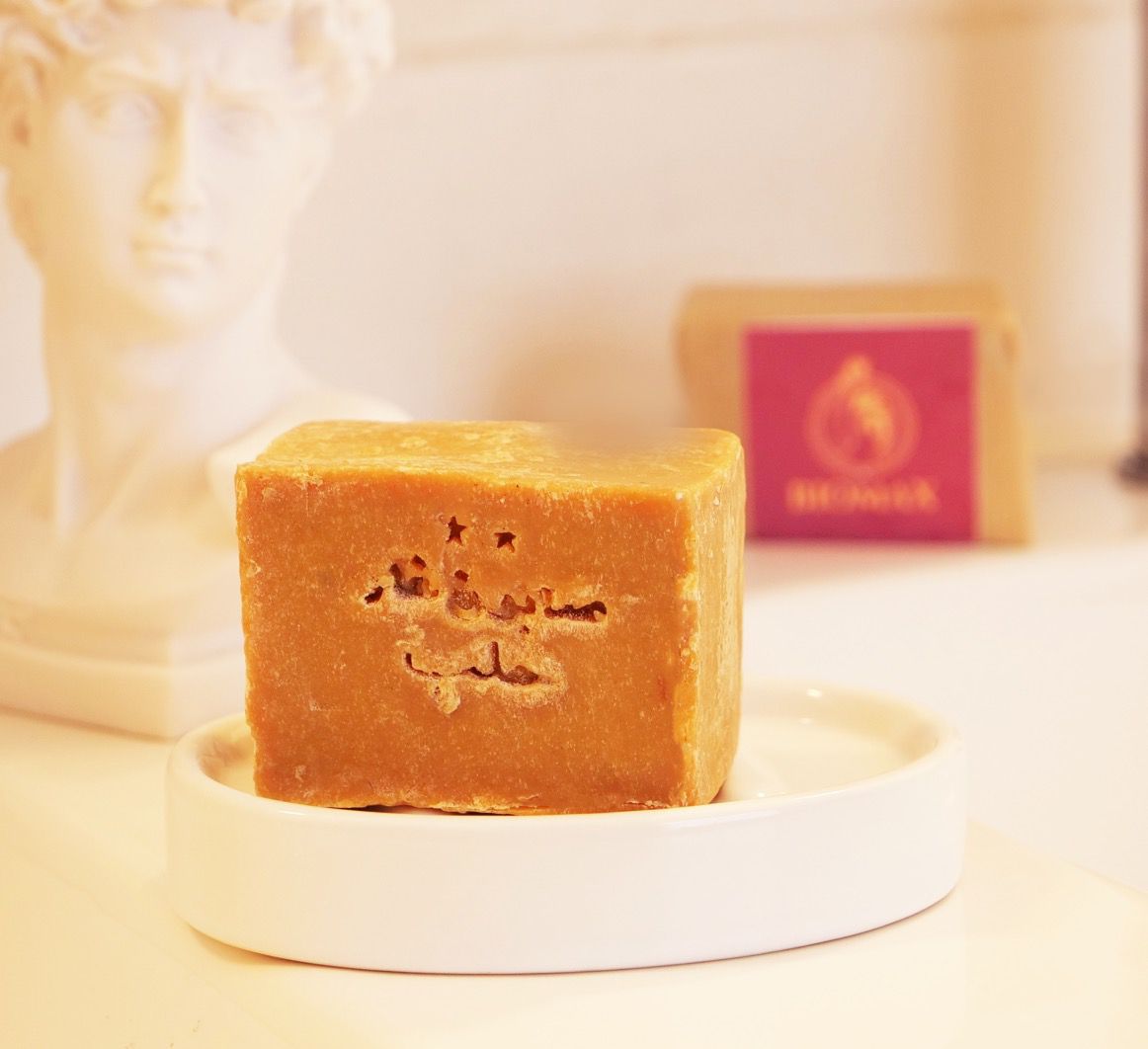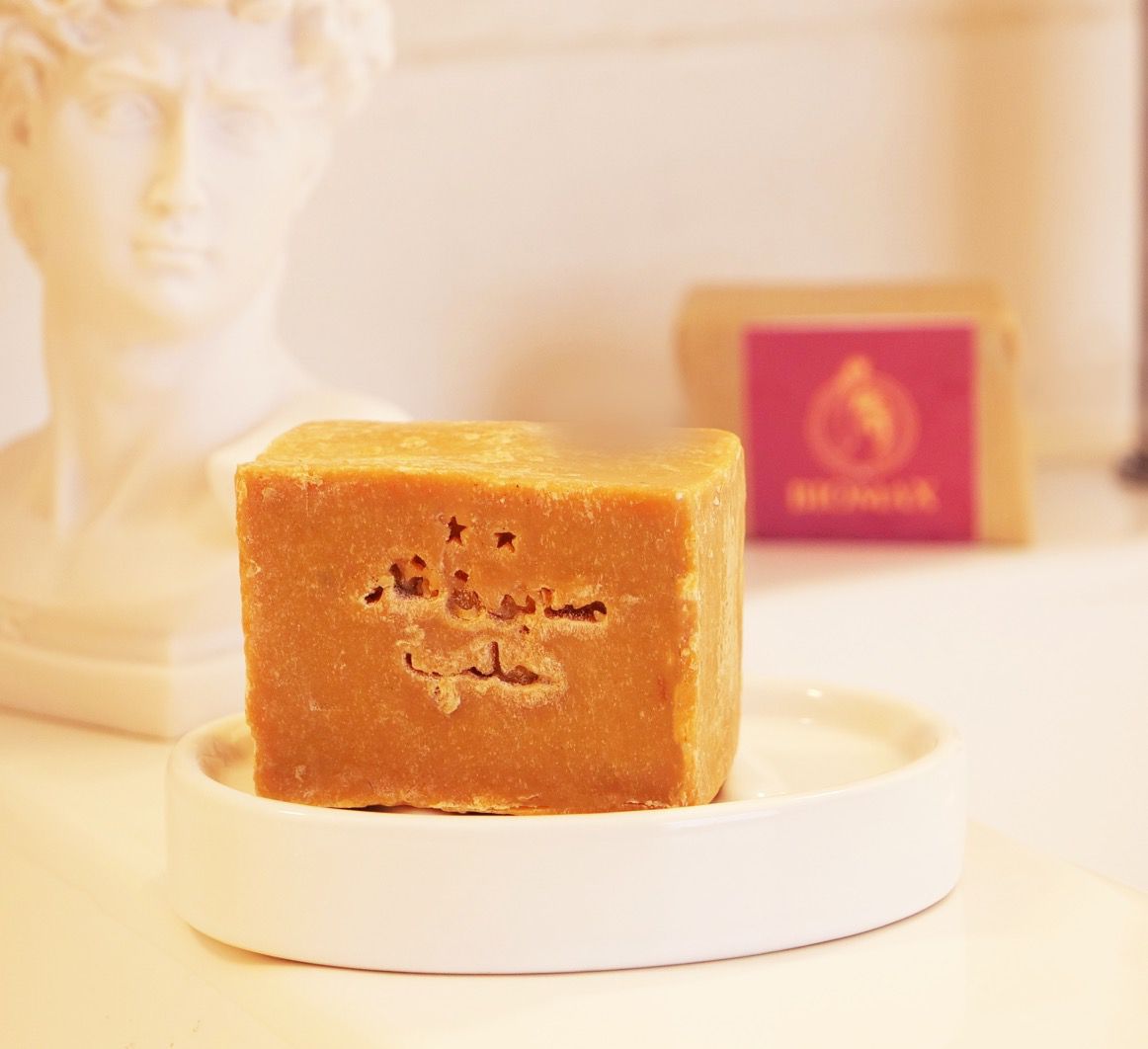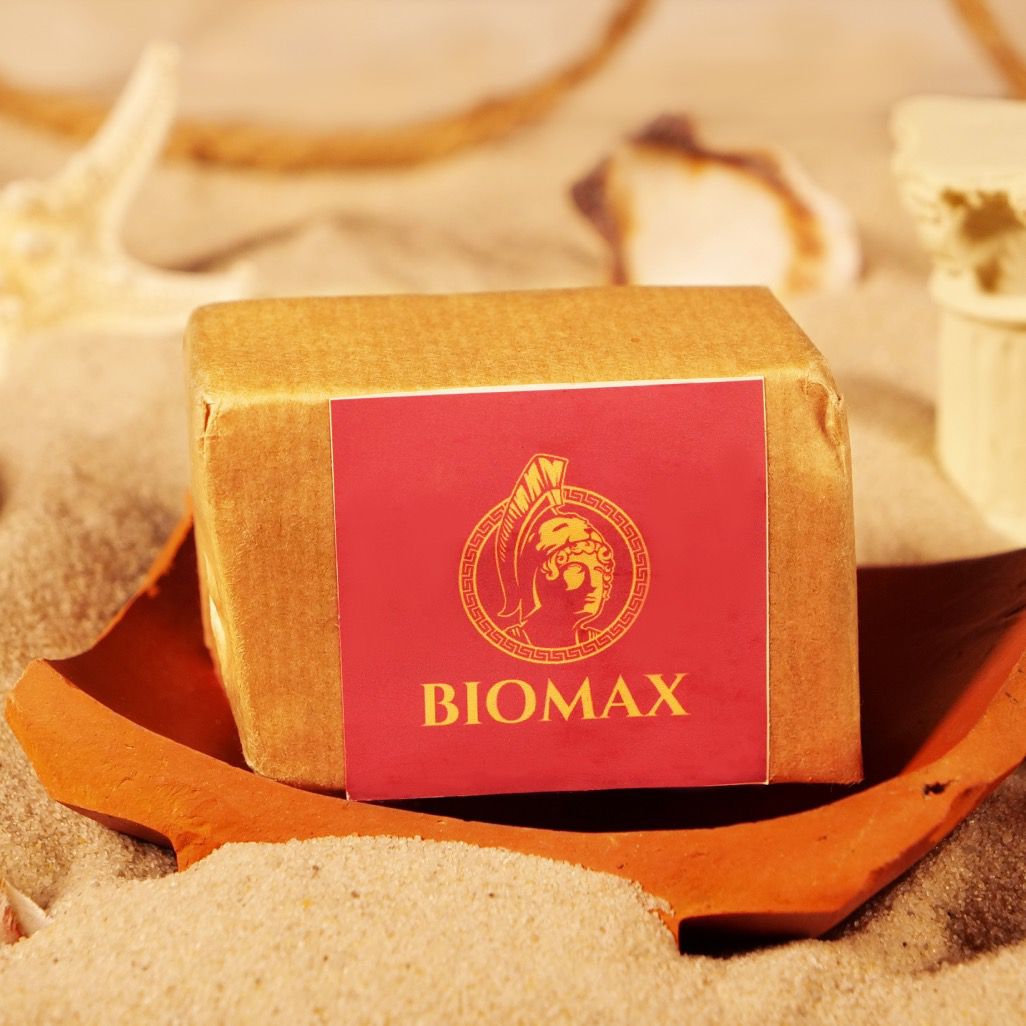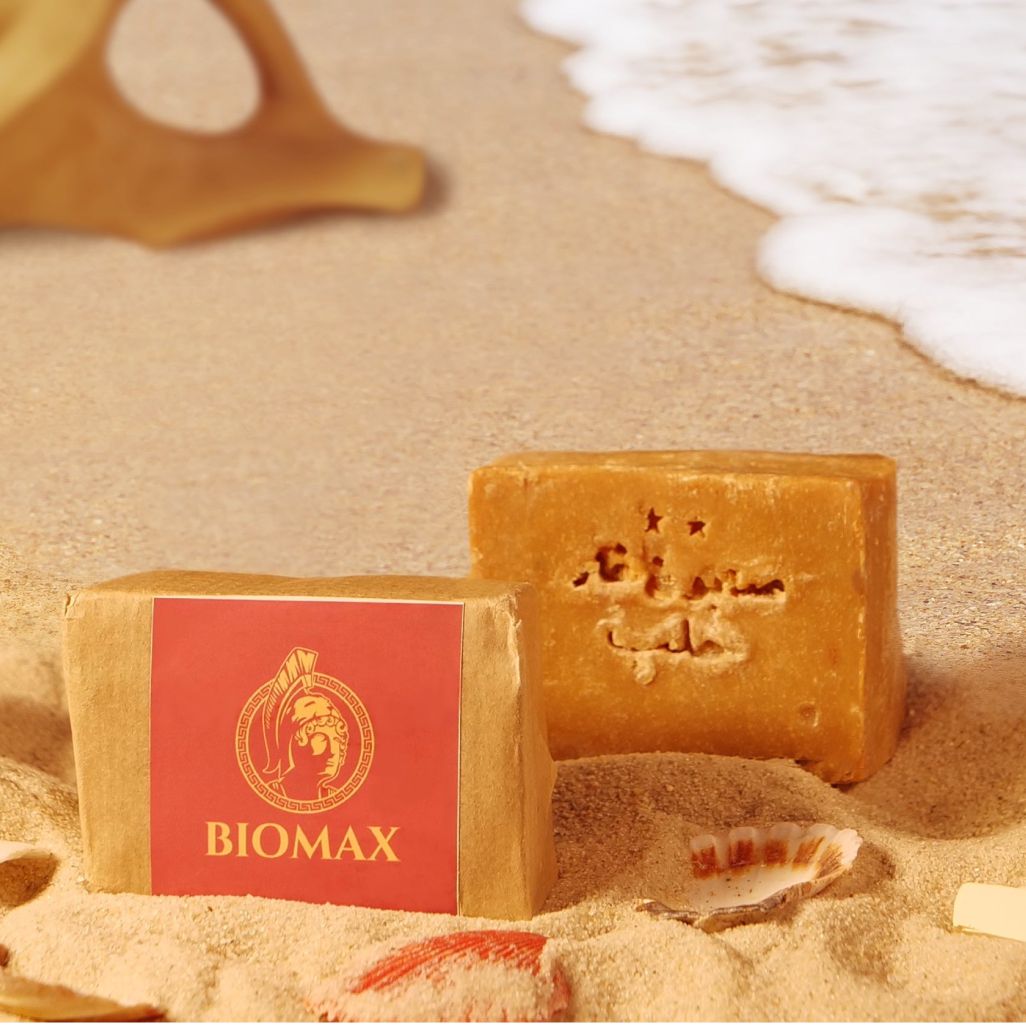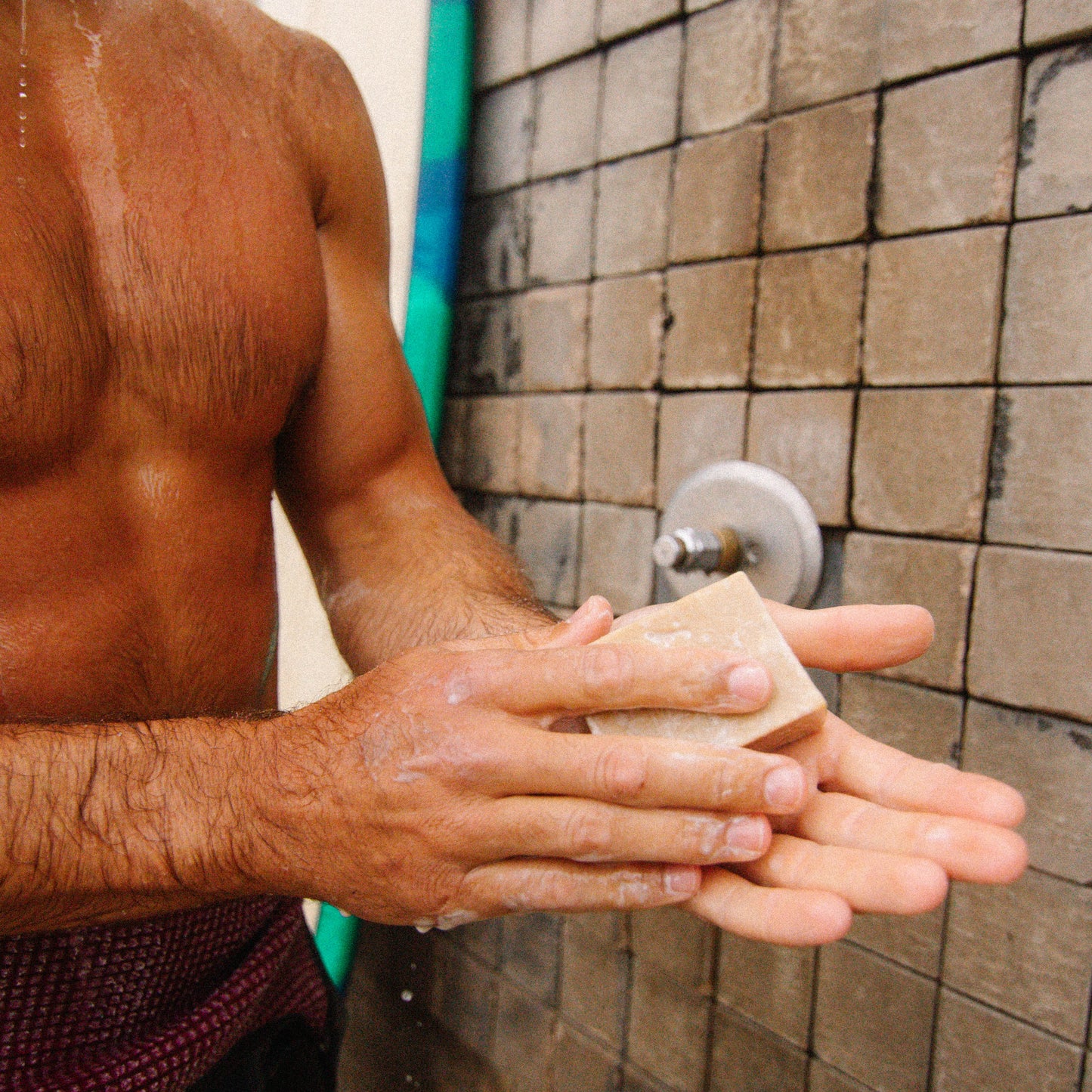First off, what is lye?
Lye is the informal term for either Sodium Hydroxide (NaOH) or Potassium Hydroxide (KOH).
The production of the compound is incredibly simple:
- Collect white ashes from hardwood fires.
- Collect rainwater or distilled water and add it to the white ashes in a roughly 2 parts water 1 part ash ratio.
- Mix the 2 together and then let it drain over a few days.
- The drained mixture is usuable lye in the production of soap.
It's that simple.
To make soap, the lye solution is then mixed with the desired fat (lard, tallow, coconut oil, or in our case, olive oil & laurel oil).
That is the essence of how soap is made (saponification). Without the lye the oils and water will not mix, and the oil will just float on top of the water. It's impossible to produce soap without it.
Once the production of the soap has been completed however, there is no lye left in the final product. The lye reacts with the oils, turning what starts out as liquid into blocks of soap.
Lye is a strong alkaline of pH 13. If there was any lye in the final product, it would cause adverse reactions in the skin.
Most modern soaps are not actually soap at all, but are synthetic detergents made with a concotion of laboratory ingredients. There is no saponification process & no lye is involved in their production.
Lye is essential in the production of true soaps, and has been used for many years.
For thousands of years people made their lye by leaching water through wood ashes layered in a barrel or other container, before there was any real large-scale industry involving the production or commercialization of soap.
Lye is perfectly natural & healthy.
